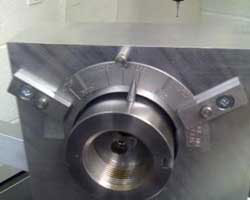
Precision engineering does differ from other types of engineering like software engineering, electrical engineering, mechanical engineering, electronics engineering etc. in that it the precision engineer is more concerned with the design of fixtures, machines and other products which will remain stable over time whilst repeating tasks of low tolerances – in other words one of the tasks of a precision engineer is to design and create a machine which creates other products.
The work of a precision engineer is extremely precise (hence the name) working to scales and limits the rest of us can only imagine whilst being able to fully predict the behaviour of the machine.
Precision Engineering Goals
The precision engineering industry does have a list of very exact goals which they strive to reach and adhere to;
- Precision engineers strive to create movement of the highest precision
- They work to reduce any dispersion of the function of the part or product
- They work particularly in the area of automatic assembly machinery eliminating the need for many manual fitting procedures
- They strive to reduce the initial costs involved with the production of the part
- The strive to reduce the running cost of the production of the part
- They strive to extend the longevity and life span of the machines they develop
- Make many of the product or part functions work independently from each other
- Advance the technologies and associated sciences in their profession
- Lower safety factors for their products or machines
Precision engineering companies are involved with many facets of the engineering world – many of the skills and tools used are interchangeable. They work to provide top quality assembled and/or machined parts to many facets of the manufacturing industry and work in many different materials including stainless steel, aluminium, titanium, steel, lead and more.
Thompson Precision Engineering have a wealth of experience in this area and no project has beaten us yet!





